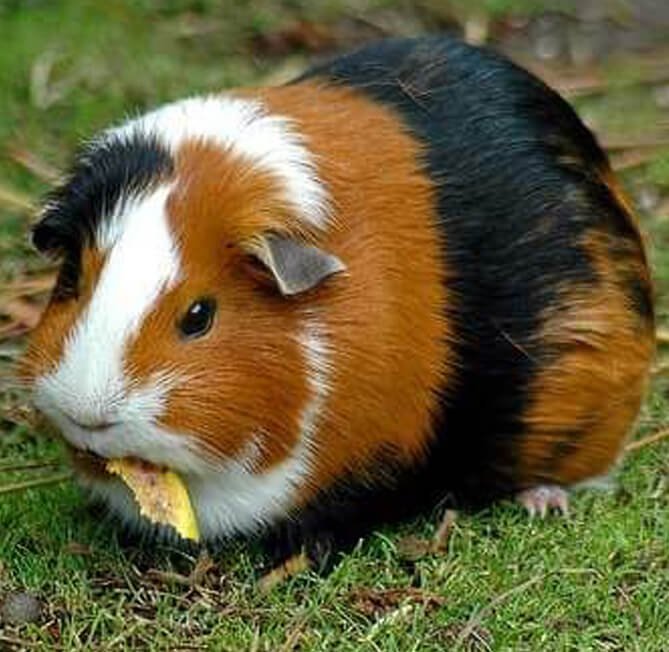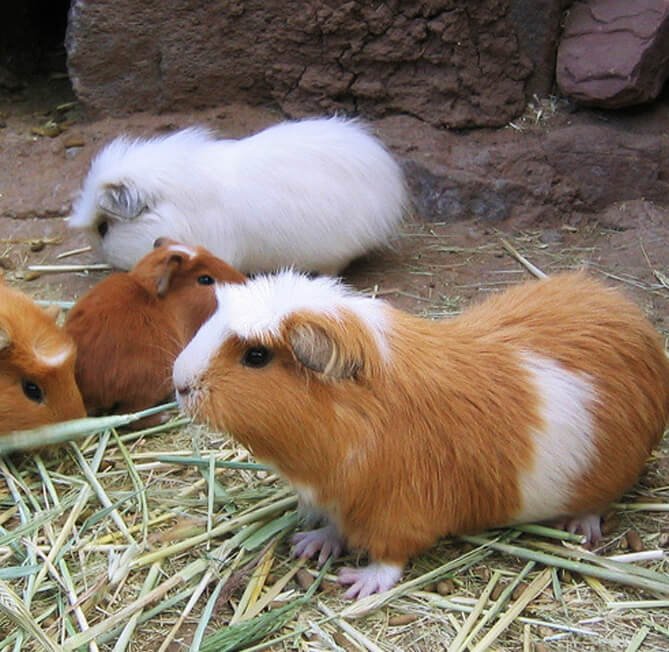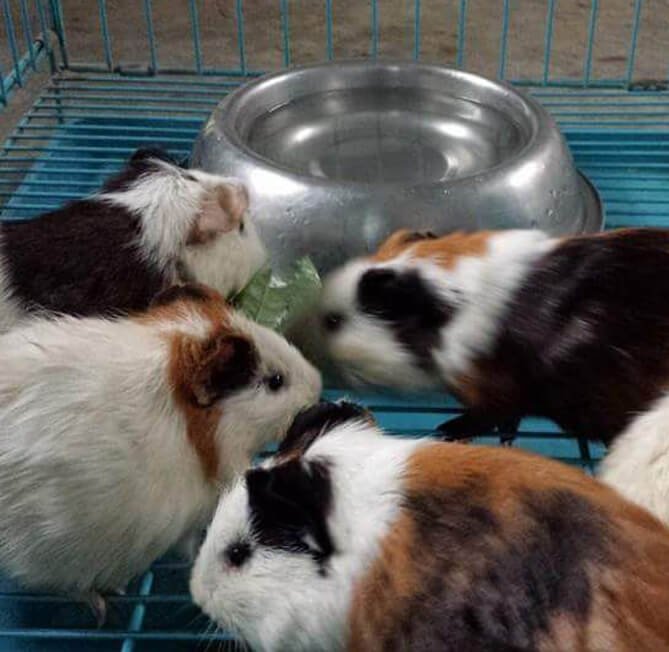


The domestic guinea pig, or simply guinea pig, also known as cavy or cuy for livestock term, is a species of rodent belonging to the family Caviidae and the genus Cavia. Despite their common name, these animals are not in the pig family Suidae, nor do they come from Guinea. They originated in the Andes, and earlier studies based on biochemistry and hybridization suggest they are domestic descendants of a closely related species of cavy such as C. aperea, C. fulgida, or C. tschudii and, therefore, do not exist naturally in the wild. Recent studies applying molecular markers, in addition to studying the skull and skeletal morphology of current and mummified animals, revealed that the ancestor is most likely Cavia tschudii.
Scientific name: Cavia porcellus
Lifespan: 4 – 8 years
Gestation period: 59 – 72 days (Adult)
Mass: 0.7 – 1.2 kg (Adult)
Higher classification: Cavia
Entertaining and gentle, the pet guinea pig is vocal and delightful. They have become very popular pets because of their docile temperaments, tendency not to bite or scratch when handled, relatively clean habits and availability. They are sociable animals and enjoy daily interaction.
Common ailments in domestic guinea pigs include respiratory tract infections, diarrhea, scurvy (vitamin C deficiency, typically characterized by sluggishness), abscesses due to infection (often in the neck, due to hay embedded in the throat, or from external scratches), and infections by lice, mites, or fungus.
Mange mites (Trixacarus caviae) are a common cause of hair loss, and other symptoms may also include excessive scratching, unusually aggressive behavior when touched (due to pain), and, in some instances, seizures. Guinea pigs may also suffer from "running lice" (Gliricola porcelli), a small, white insect which can be seen moving through the hair; their eggs, which appear as black or white specks attached to the hair, are sometimes referred to as "static lice". Other causes of hair loss can be due to hormonal upsets caused by underlying medical conditions such as ovarian cysts.